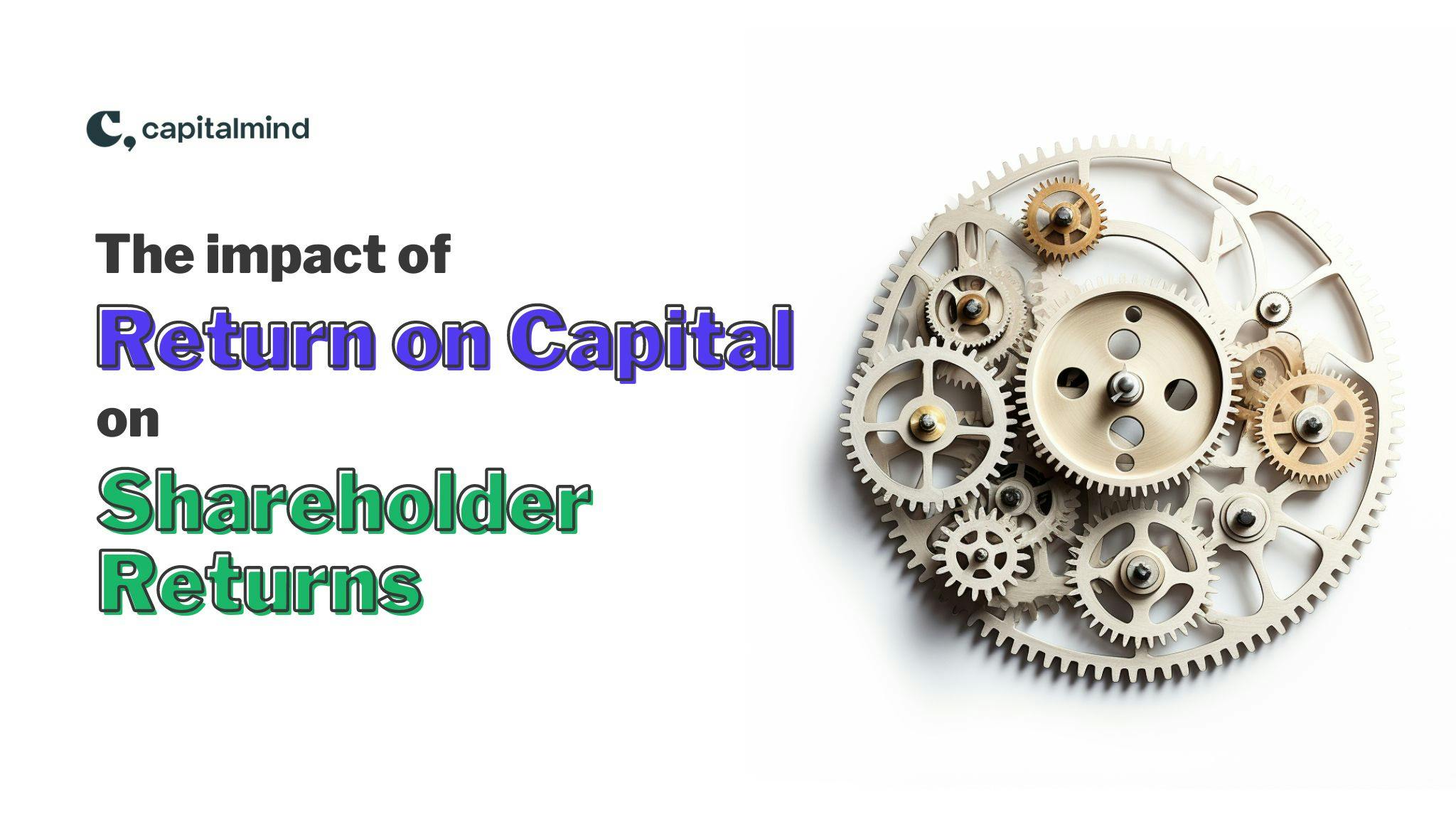(category)Concepts & Tutorials
Why investing more money matters more than targeting higher returnsWhy investing more money matters more than targeting higher returns
There's no end to the fight for higher returns, but is it really worth the effort? If what you need is a pot of gold at the end, is it just better to focus on adding more to the kitty than to identify the most awesome investment return on the capital? We explore.
Deepak Shenoy•

I'll make the argument that "higher" is evasive. "Highest" is for conversation at parties. The real thing is "high enough" - but that is nuanced and subjective. So let me explain.
As a fund manager, higher returns are sort of the holy grail. You have to have good returns. With the caveats of not taking lopsided risk. Because fund managers are measured mostly by performance. There is an element of trust that comes in with the amount of time in the market, the experience of past crashes and market cycles, and with how a manager approaches the market, but you still need reasonable performance. (Disclosure: At Capitalmind PMS we are a SEBI registered portfolio manager.)
To an investor, of course, the question is: what is reasonable? Here's the set of approaches.
"I want the highest return possible, all the time"
This approach is a good starting point, when you are at a starting point. Meaning, when you start off in the markets, you have no idea of what markets will do to your stomach lining when your own money is involved. It's like watching a roller coaster from the outside and saying, oh no big deal - but the thrill and the feeling in your stomach is very different when you actually ride it.
You start with ranking everyone on performance and then choose the top one or two. At any point, it will appear that some fund is doing way better than the rest - and you can just buy them. Or you'll hear of some strategy that has absolutely incredible returns (4% a week!) and want to go with it.
Very quickly, you realize that those showing insanely large returns are one of two things. One is that they take a layer of risk that can result in massive portfolio damage when that risk doesn't work out. Buying into tinycaps that are hitting upper circuits every day, buying stock options in a "hero-or-zero" trade where you hear only of the heroes, or concentrating a portfolio in some stocks which take a beating. When times change, they fall equally badly.
The second is the Madoff-style, where they will tell you about some X returns, but in practice, it's never actually happened. Anything that's bonkers off the charts on returns is usually one of the above.
Now something that goes up 75% in a year, but then falls 40% the year after that, is how much? The correct answer is: 5% in two years. Your Rs. 100 went to Rs. 175 and then fell to Rs. 105. Going from 100 to 105 in two years is like hello why did I bother at all.
So you want it to go up and not fall too much. Means much lower downside than upside. Don't fall too much; we'd rather have that.
Less Volatility, Please?
Perhaps we want volatility adjusted returns. Meaning: If the portfolio is less volatile, we should not mind lower returns. This is fair at extremes. I mean we love our Fixed Deposits, which have "no" volatility. I put the quotes there because if you put your money in a shitty company which goes bust, you lose 100% of your money including interest. But by and large, with banks in India, fixed deposits have been safe, and not volatile at all. You always get your principal back so there is no downside.
At the other extreme is the massive return with massive volatility. Up 75%, down 50%, then up again.
In the middle is a minefield. People think they want lower volatility but in reality, it's like this:
"Wait, my portfolio did 12%? That's just about ok, but this other mutual fund did 45%. Why can't I take that one?"
"Because it's volatile, and is mostly in small caps and tends to fall a lot more than your portfolio"
"But I can handle risk, bro. I hate this sucky portfolio."
Market falls 20% because of some Greece something and some Russia something.
"Wait my portfolio returns are down to 6%!"
"Remember that other mutual fund you mentioned? That's down 40%. You're far less volatile."
"Thank god I didn't change anything. But damn, 6% return in two years also sucks no?"
This is not me ridiculing someone else. This is how even I feel, and it's natural to feel this way. We want volatility on the upside and at least FD return on the downside. It's how we are built. Relative numbers don't make sense all the time.
The key element here is a comparison. When markets are doing well, we want what's doing the best. When markets are correcting, we think longingly of FD returns. The "less volatility" isn't so much a problem with the volatility part, it's the 'less' that makes us fret.
For an investor, there are perhaps better things to do than to live with a never-ending feeling of regret on investment returns. Instead, it may be better to just target what matters: how much money you end up with.
Investing more makes a larger difference
I wrote in my book about a few things: the percentage growth of your portfolio actually matter less than the amount you invest, for how much money you end up with. This sounds obvious, because if I invest Rs. 1000 and don't do stupid things like buying an airline, I will end up with much more than if I invested Rs. 100. But it's not that obvious in practice.
In real life, most of us tend to earn money every month. And we spend on our necessities and wants and desires. What's left over, we expect to invest. But it doesn't happen that way. What actually happens is:
- I want to invest because I want money for later
- I'm probably ok investing 25,000 per month
- Wait, this equity mutual fund looks good, let me set up a 10 year SIP.
- When the paycheck comes, I spend on rent/EMI, bills and then the SIP goes
- Whatever's left, I just spend and honestly, I don't know where that money goes
The 25,000 a month SIP into equity is good. But in a few years, your income goes up and your savings increases but the SIP remains the same. After 10 years, you find that you've got 12% returns per year, and you now have a fat nice sum of Rs. 80 lakh!
But then, let's say your friend decides that no, I don't like equity. I want fixed income, so I'll invest in a conservative hybrid product that gives just 8% a year. But she increases her SIP by one-tenth every year - so the first year she's putting 25K per month, then 27.5K per month etc. The additional amounts are too small to notice.
But guess who ends up with more money?
Investing 25K SIP: What earns more:

The increasing SIP gets your friend to Rs. 98 lakh, about 18 lakh more than you. Will you go to her and gloat that you got 12% return versus her measly 8%, knowing that she has more money now, and you don't where you spent that extra 10% you could have invested? That 18 lakh extra could buy, heck, a car today.
Of course by the end of the 10 years, your friend is investing about Rs. 58K per month. This is far more than you are investing (25K) but by that time, your income has grown and you have the excess to invest and had it all along. Just that you fixed your investment rather than increased it.
It's also easier to target larger long term numbers
Let's say someone told you that you will need Rs. 1 crore for your child's education 18 years later. At 5% inflation this translates to about 2.4 crore rupees.
To get there, assuming 12% a year as returns:
- Fixed SIP: Rs, 32,000 per month
- Increasing SIP, one tenth a year: Rs. 17,000 per month
Meaning, over a long term, you can get to a goal with an increasing SIP, with half the amount initially! You can target higher numbers even if you make less now. The idea here is simple: your income will grow, so plan for it to grow and you can add to investing similarly.
So if I don't care about returns...
It isn't the return percentage that matters. It's how much you invest, and if you focus on that, the rest is mere details. The grand plan of life isn't to get greater returns, it's to make for enjoyable experiences and to have enough to spend. And that "enough" doesn't have to come from a higher-risk/higher-return viewpoint.
What you invest in should probably have more things to think about: Trust and integrity, for one. These things matter at the extreme times, to understand that your manager isn't doing things that are strangely risky for abnormally high returns. (Cue: the Franklin debt saga)
Or that you're getting a product that has regulation to protect you, that allows you the freedom to add more when you like, and that if something happens to you it allows you the freedom to use that money, or your next of kin to get it easily. These are more comforting factors than return percentages.
In another vein, if your focus is on increasing how much you invest, you should also focus on increasing your income. Meaning, make more money and you'll have more to invest. Sounds easy to say, but think of this: spending money on a course, a certification, a degree or something like that will do more good for your income potential when you're early in your career, than trying to invest that money. (Heck, it will help even later in your career, but I digress)
My final caveat is of course this: don't crimp your lifestyle to save more. I see videos of people who downgrade their lifestyles so that they can have more money to invest, and then they end up with a lifestyle they hate, for a life they imagine will do them wonders in the future. This is almost pointless (other than to make videos that earn them income, a noble goal). But don't do that - or be the video creator that makes the money. In fact, the point of money is to make life enjoyable; so go on and have fun. (Read: Plan less, live more)
Chasing returns is a maze. Investing a bit more over time is an easier path to your goals.
Related Posts
Make your money work as hard as you do.
Talk to a Capitalmind Client AdvisorInvesting is not one size fits all
Learn more about our distinct investment strategies and how they fit into your portfolio.
Learn more about our portfoliosUnlock your wealth potential
Start your journey today



